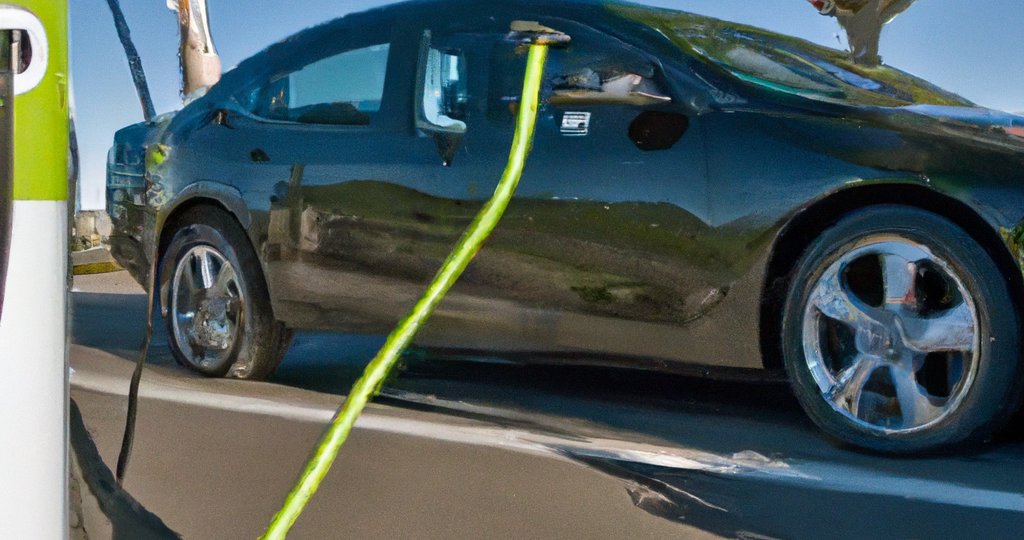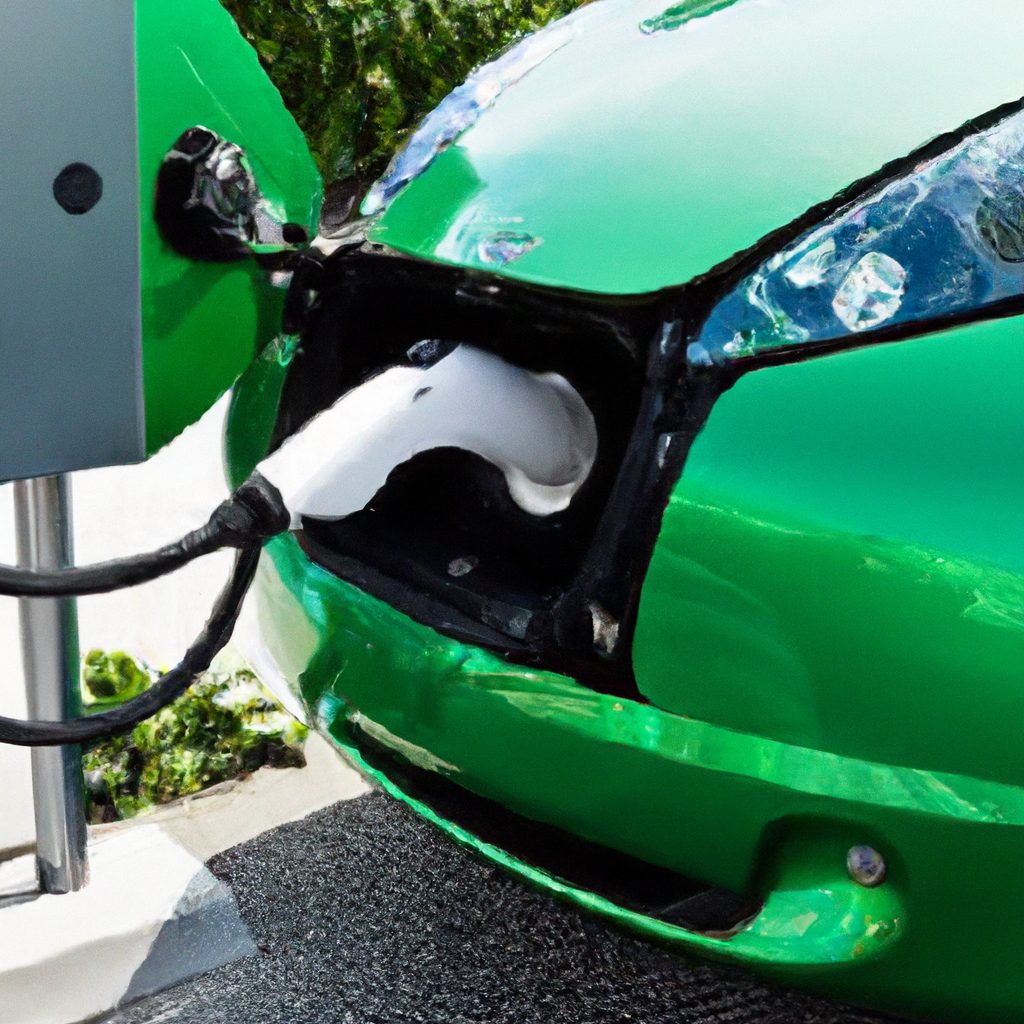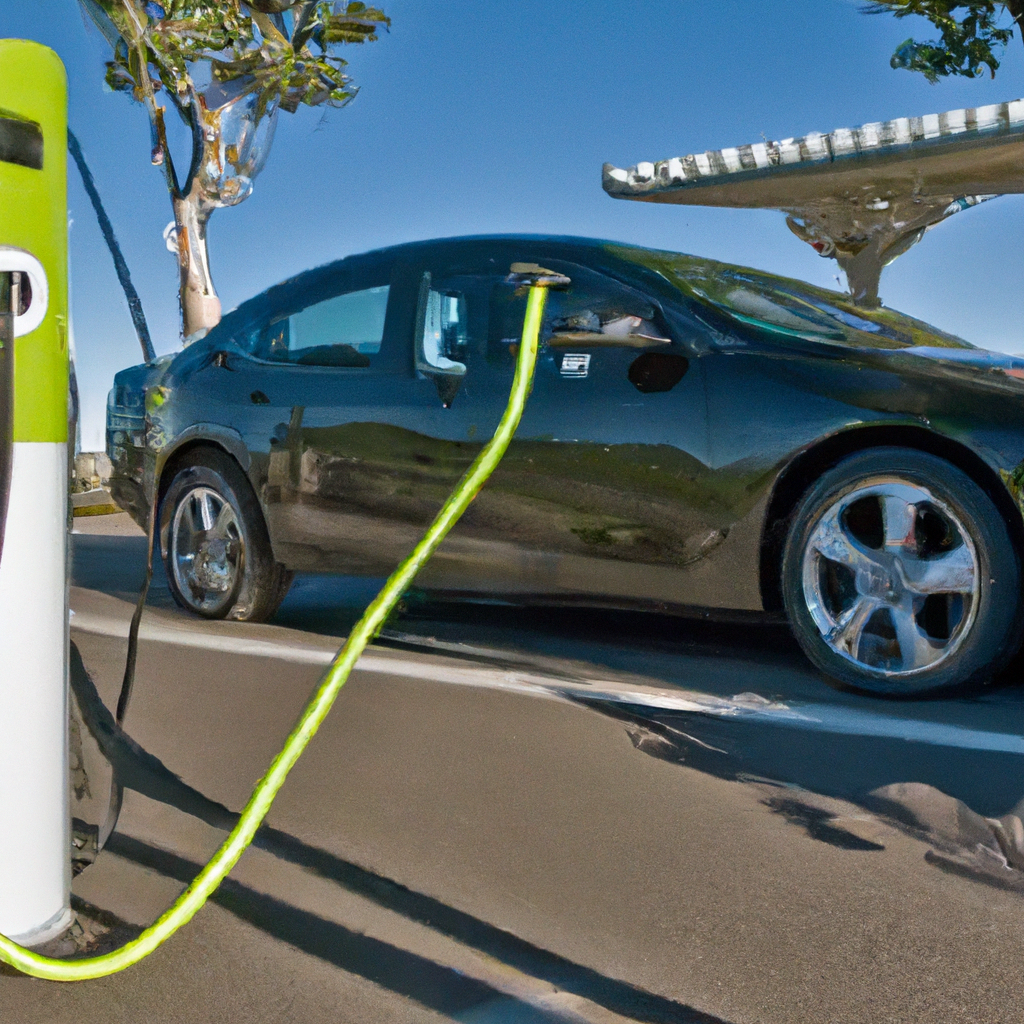EV Chargers And Renewable Energy: A Greener Charging Experience
October 22, 2023 | by Jacob Kang

Looking to charge your electric vehicle while minimizing your carbon footprint? Look no further than EV chargers and renewable energy. In this article, we will explore the concept of a greener charging experience and how it can benefit both the environment and your wallet. By utilizing renewable energy sources to power your EV charger, you can reduce your reliance on fossil fuels and contribute to a more sustainable future. So, get ready as we delve into the world of EV chargers and renewable energy, and discover the advantages of embracing this green technology.
The Importance of Renewable Energy
Renewable energy sources are becoming increasingly vital in the fight against climate change. As the world seeks to reduce its dependence on fossil fuels and transition to more sustainable alternatives, understanding the importance of renewable energy is crucial. Renewable energy refers to sources that are naturally replenished, such as sunlight, wind, water, geothermal heat, and biomass. Unlike fossil fuels, which are finite and contribute to greenhouse gas emissions, renewable energy offers a cleaner and more sustainable solution to our energy needs.

Understanding Renewable Energy Sources
Renewable energy sources can be broadly categorized into four main types: solar energy, wind energy, hydropower, and geothermal energy.
-
Solar Energy: Solar energy harnesses the power of the sun through photovoltaic (PV) panels or solar thermal systems. PV panels convert sunlight directly into electricity, while solar thermal systems use the sun’s heat to generate electricity or heat water.
-
Wind Energy: Wind energy is generated by wind turbines that convert the kinetic energy of the wind into electricity. These turbines consist of large blades that rotate as the wind blows, producing clean and renewable energy.
-
Hydropower: Hydropower utilizes the force of flowing or falling water to generate electricity. It is one of the oldest and most widely used renewable energy sources, with hydroelectric power plants playing a significant role in global electricity production.
-
Geothermal Energy: Geothermal energy utilizes the heat generated by the Earth’s core to produce electricity or heat buildings. This clean and sustainable energy source taps into the natural heat reservoirs deep beneath the Earth’s surface.

Benefits of Renewable Energy
The shift towards renewable energy offers numerous benefits that extend beyond environmental concerns. Here are some of the key advantages:
-
Climate Change Mitigation: Renewable energy sources produce little to no greenhouse gas emissions during operation, significantly reducing our carbon footprint. By replacing fossil fuels with renewable sources, we can mitigate the effects of climate change and limit global warming.
-
Energy Security: Unlike fossil fuels, which are subject to price volatility and geopolitical tensions, renewable energy sources are abundant and widely distributed. Investing in renewables enhances energy security by reducing reliance on foreign oil and gas imports.
-
Job Creation: The renewable energy sector has the potential to create millions of jobs globally. From manufacturing and installation to maintenance and research, the transition to renewables stimulates economic growth and job opportunities.
-
Environmental Sustainability: Renewable energy sources have a significantly lower impact on the environment compared to fossil fuels. They reduce air and water pollution, preserve natural habitats, conserve water resources, and help combat deforestation.
-
Cost Competitiveness: Over the past decade, the cost of renewables, especially solar and wind energy, has plummeted. Today, in many regions, renewable energy is already cost-competitive or even cheaper than fossil fuels, making it an attractive option for investment.

Impact of Renewable Energy on Climate Change
Climate change is one of the most pressing issues of our time, and renewable energy plays a critical role in addressing its impact. By replacing fossil fuel-powered energy systems with renewables, we can significantly reduce greenhouse gas emissions and minimize the negative effects on our planet. Here’s how renewable energy impacts climate change:
-
Greenhouse Gas Reduction: The use of renewable energy sources, such as solar and wind power, avoids the release of greenhouse gases that contribute to global warming. Unlike fossil fuels, which release carbon dioxide (CO2) when burned, renewables produce little to no emissions, helping to stabilize and reduce atmospheric CO2 levels.
-
Clean Air and Water: Fossil fuel combustion releases pollutants into the air, leading to respiratory illnesses, smog, and acid rain. Renewables, on the other hand, produce clean energy without emitting harmful pollutants, improving air and water quality and safeguarding public health.
-
Resilient and Sustainable Infrastructure: Renewable energy systems, such as solar panels and wind turbines, have a long lifespan and require minimal maintenance. This makes them more resilient in the face of climate change impacts and natural disasters. Additionally, the decentralized nature of renewable energy allows for greater resilience and reliability in the energy grid.
-
Adaptation and Mitigation: Investing in renewable energy not only helps mitigate climate change by reducing greenhouse gas emissions but also enhances our ability to adapt to its impacts. Renewable energy technologies can provide decentralized and reliable power in vulnerable communities, ensuring access to electricity during extreme weather events and emergencies.

Growing Popularity of Renewable Energy
Renewable energy is experiencing a global surge in popularity, driven by several factors. As governments, businesses, and individuals recognize the importance of combating climate change, the demand for renewable energy sources continues to grow. Here are some key reasons behind the increasing popularity of renewables:
-
Policy Support: Governments worldwide are implementing policies and incentives to promote renewable energy adoption. From feed-in tariffs to tax incentives and renewable portfolio standards, these measures encourage investment in renewables and create favorable market conditions.
-
Technological Advancements: Rapid advancements in renewable energy technologies have made them more efficient, affordable, and accessible. Improved solar panels, wind turbines, and energy storage solutions have enabled wider adoption of renewables, driving their popularity.
-
Public Awareness and Environmental Consciousness: Growing awareness about the environmental impacts of fossil fuels has led to increased public support for renewable energy. People are becoming more conscious of their carbon footprint and are actively seeking greener alternatives for their energy needs.
-
Decentralization and Energy Independence: Renewable energy offers the potential for decentralized energy generation, allowing individuals and communities to become energy self-sufficient. This shift towards distributed generation empowers individuals to take control of their energy consumption and reduce dependence on centralized power grids.
-
Economic Viability: Due to significant cost reductions and improved efficiency, renewable energy sources have become economically viable alternatives to fossil fuels. Many investors and businesses now view renewable energy projects as profitable investments, further driving their popularity.
In conclusion, renewable energy sources play a crucial role in combating climate change, reducing greenhouse gas emissions, and promoting a more sustainable future. Understanding the importance of renewables, their benefits, and their growing popularity can help pave the way for a greener and cleaner world. By embracing renewable energy, we can power sustainable transportation, reduce our carbon footprint, and create a brighter future for generations to come.

RELATED POSTS
View all


